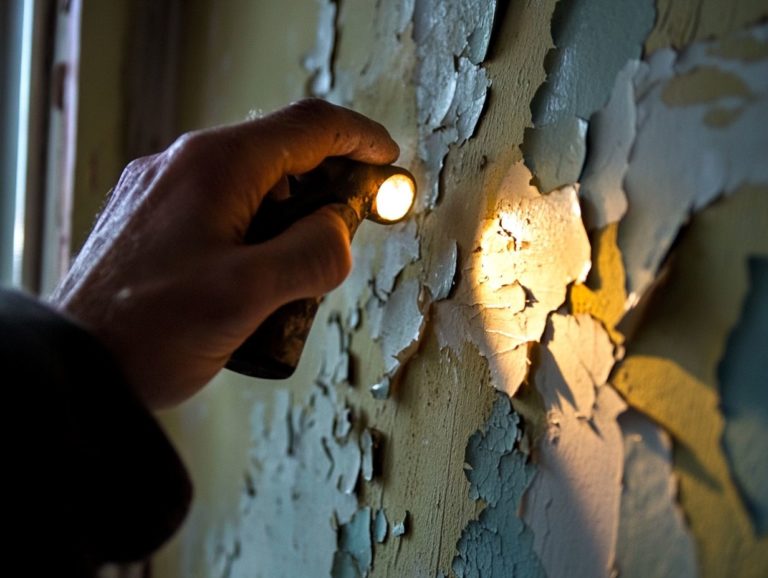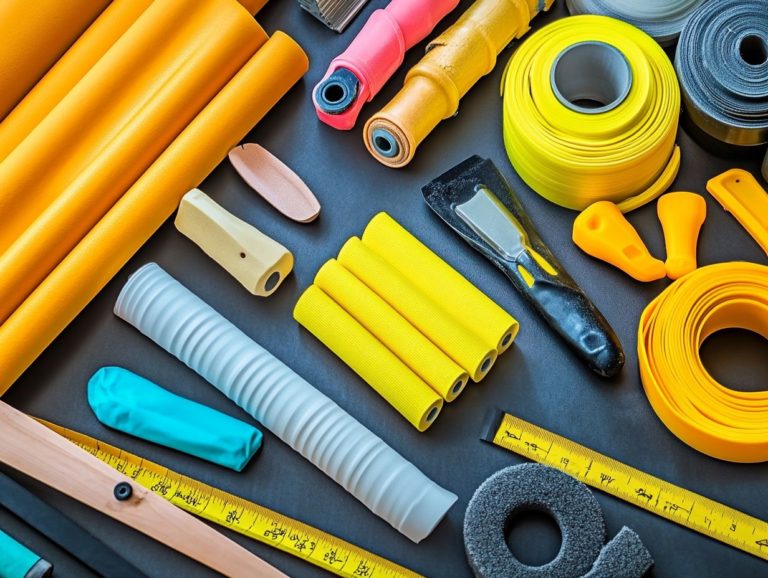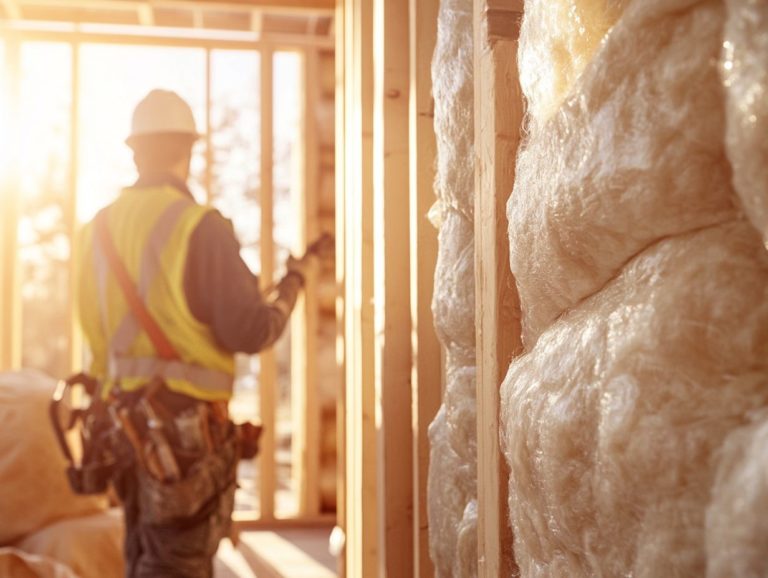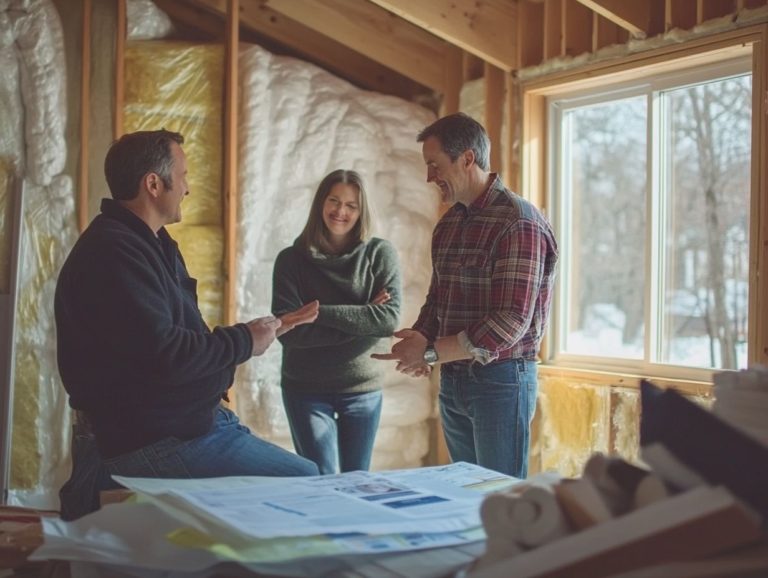How Insulation Impacts Your Home’s Resale Value
When selling your home, numerous factors come into play regarding its resale value. Insulation is often a crucial factor that flies under the radar.
The type and quality of insulation are not just about comfort; they significantly contribute to your home’s market appeal. This article delves into the various types of insulation and how they influence resale value, along with the effects of location, climate, and the condition of your existing insulation on your property’s worth.
You’ll discover smart upgrade strategies to maximize your investment. By prioritizing effective insulation, you can enhance your property’s allure and improve your return on investment.
Contents
- Key Takeaways:
- Understanding the Connection
- Types of Insulation and Their Effect on Resale Value
- Factors That Affect Insulation’s Impact on Resale Value
- Maximizing Resale Value with Insulation Upgrades
- Potential Return on Investment for Insulation Upgrades
- Frequently Asked Questions
- What is insulation and why is it important for a home’s resale value?
- How does insulation affect a home’s energy efficiency?
- Does insulation impact the resale value of a home in warmer climates?
- How can inadequate insulation affect a home’s resale value?
- Can adding insulation increase a home’s resale value?
- Is it worth investing in insulation for a home that is already on the market?
Key Takeaways:
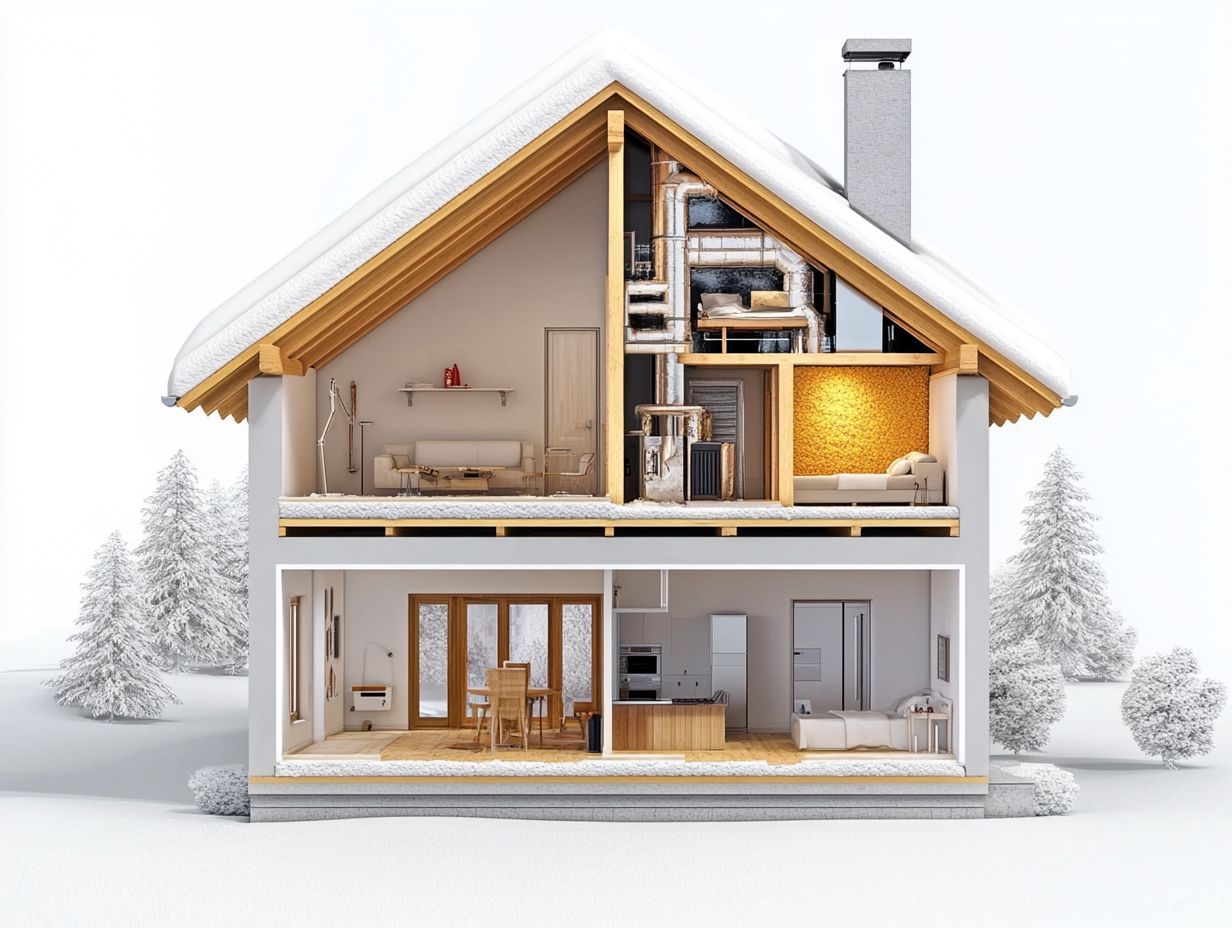
Insulation can make or break your home’s resale value! Discover why insulation is key for home comfort and how upgrading your insulation leads to impressive returns.
The type of insulation used can significantly impact resale value. Location, climate, and the age and condition of insulation all play a role in how much value it adds to a home. Investing in insulation upgrades can increase a home’s resale value and provide a strong return on investment.
Understanding the Connection
Grasping the connection between insulation and property value is essential for homeowners. Insulation boosts energy efficiency and comfort, while also affecting utility bills and overall market appeal.
Effective insulation also improves your home’s air quality and comfort. This makes your property a highly attractive energy-efficient option for buyers.
In today s real estate market, this makes insulation a worthwhile investment especially when considering energy-saving renovations that can lead to long-term savings and an increased resale value.
Types of Insulation and Their Effect on Resale Value
Different types of insulation are essential in shaping the resale value of your home. As a homeowner, consider options such as fiberglass insulation, spray foam, or cellulose insulation to boost energy efficiency and enhance comfort levels.
Each variety comes with its own unique characteristics and benefits. Understanding these distinctions is vital for homeowners involved in improvement projects aimed at maximizing property value.
Comparing Different Types of Insulation
When comparing insulation options, understanding the advantages and drawbacks of fiberglass, spray foam, and cellulose insulation is crucial. As a home buyer, energy efficiency likely tops your list of priorities.
By assessing factors like installation costs, long-term savings, and environmental impact, you can make well-informed decisions that enhance your property s appeal and resale value.
Fiberglass insulation is an affordable starting point, known for its decent insulation effectiveness ratings, typically ranging from R-2.9 to R-4.3 per inch. It s a solid choice for those on a budget.
On the flip side, spray foam insulation, while usually pricier, offers impressive effectiveness ratings between R-6 and R-7 per inch. This exceptional air sealing and insulation performance makes it a top contender for anyone serious about energy conservation.
If you lean towards eco-friendliness, cellulose insulation is your go-to, crafted mainly from recycled materials. With effectiveness ratings around R-3.2 to R-3.8 per inch, it s perfect for the environmentally-conscious buyer.
Keep in mind that each type comes with its own installation methods, which can influence labor and overall project costs. This ultimately shapes how you view energy efficiency in both short- and long-term scenarios.
How Each Type Affects Resale Value
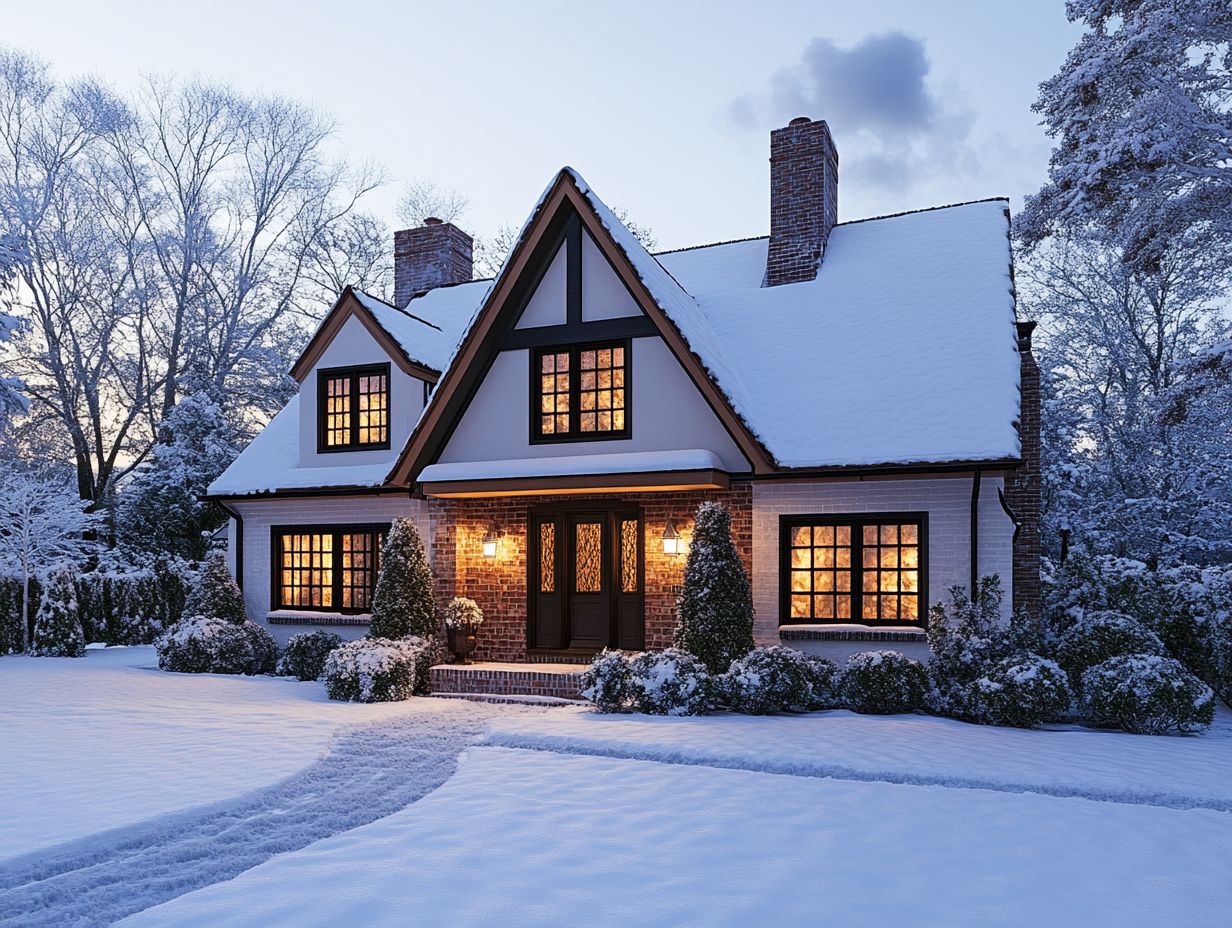
Insulation types greatly affect resale value. For instance, understanding the cost-benefit of insulation can help demonstrate that energy-efficient homes with high-quality insulation often command a premium in the real estate market.
Home inspections now focus more on insulation quality. Potential buyers are increasingly aware of property maintenance and investment returns.
Investing in proper insulation boosts your property’s appeal and leads to long-term financial gains.
Research from the National Association of Realtors indicates that homes with top insulation can see price increases of up to 15%. Energy-efficient solutions, like spray foam and cellulose, offer superior thermal resistance and lower energy costs, making them attractive to environmentally-conscious buyers.
Today’s real estate trends show that properties with advanced insulation systems typically spend fewer days on the market. Highlighting these features during home inspections can strengthen your negotiating position and maximize your investment.
Factors That Affect Insulation’s Impact on Resale Value
Key factors affecting insulation’s impact include location, climate, age, and condition of the installed insulation.
If your home is in an area with extreme weather, effective insulation solutions are highly sought after, leading to enhanced resale values.
Well-maintained insulation plays a pivotal role in boosting home appraisal outcomes. Homeowners must stay informed to get the most from their investment.
Location and Climate
The location and climate of a property determine the type of insulation needed for energy efficiency and comfort. As a home buyer, you want homes with suitable insulation for your climate, which elevates the property’s market appeal.
For example, homes in colder climates benefit from high-R-value insulation materials like spray foam. In contrast, those in temperate zones may find fiberglass insulation adequate.
In hotter regions, such as the southwestern United States, reflective insulation or radiant barriers are essential for keeping your home cool and minimizing air conditioning costs. In humid areas like the southeastern states, moisture-resistant insulation is crucial to prevent mold and deterioration.
Today’s home buyers are savvy about these details. A well-insulated property ensures year-round comfort and leads to lower utility bills, making it even more attractive in a competitive market.
Age and Condition of Insulation
The age and condition of your insulation are crucial factors that influence its effectiveness and your home’s resale value. Proper installation and maintenance are essential for optimal energy efficiency and longevity.
If your home has outdated or damaged insulation, you may face higher utility bills and lower appraisals. Regularly evaluating and upgrading your insulation is imperative.
Neglected insulation compromises temperature regulation and increases energy consumption, significantly impacting your monthly utility costs. Periodically inspect your insulation for signs of wear, such as moisture accumulation, sagging, or pest infestations.
It’s also wise to check for air leaks around windows and doors to ensure proper fitting and sealing of your insulation. Hiring a professional for installation can make a substantial difference; skilled workmanship guarantees optimal thermal performance, maximizing energy savings and maintaining your home’s structural integrity.
Maximizing Resale Value with Insulation Upgrades
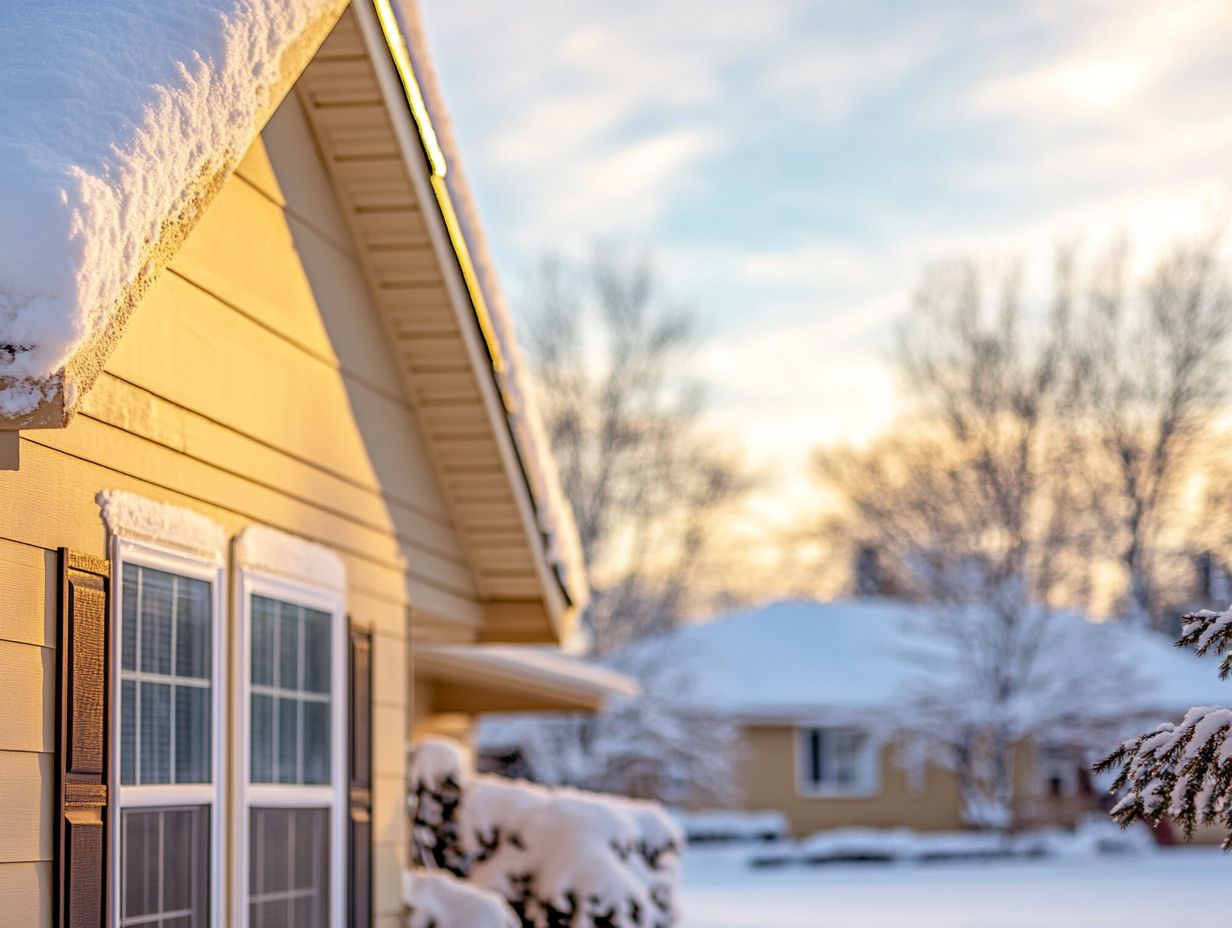
Upgrading insulation can significantly increase your home’s resale value. This move attracts buyers and enhances your property’s market appeal.
Energy-efficient homes save on utility costs. They also attract environmentally-conscious buyers willing to pay more for sustainability.
Focusing on insulation improvements helps your home stand out in a competitive market.
Strategies for Boosting Resale Value
Use effective insulation strategies to differentiate your property. Choose materials that align with market trends and buyer preferences.
Quality insulation enhances comfort and reduces heating costs. This makes your property more appealing to potential buyers.
To maximize your insulation investment, consider an energy audit. This will identify areas for improvement and ensure your spending yields high returns.
Eco-friendly options, like cellulose or spray foam, are popular with green-minded buyers. Sustainable choices can set your home apart.
Proper installation is essential. Even the best materials won’t perform well if not fitted correctly.
As sustainability becomes a priority for buyers, energy-efficient upgrades are increasingly desirable. These enhancements are smart financial decisions that can pay off.
Potential Return on Investment for Insulation Upgrades
Understanding the potential return on investment for insulation upgrades is vital. Insulation not only reduces energy bills but also boosts resale value.
Knowing how insulation materials affect market appeal helps homeowners make informed choices. This can optimize investment returns.
Calculating Potential Increase in Resale Value
To calculate the increased resale value from insulation upgrades, consider initial costs and market trends. Assess energy efficiency improvements as well.
Use home appraisal reports and market analyses to estimate how upgrades can enhance your property’s value.
Conduct thorough research for accurate potential increases in resale value. Consulting real estate professionals offers insights into local dynamics.
Online tools can provide data on comparable homes in your area. Energy-efficient upgrades lower bills and attract environmentally-conscious buyers.
Work with insulation contractors to find the best materials for your climate. This helps ensure long-term value retention and appreciation.
Frequently Asked Questions

What is insulation and why is it important for a home’s resale value?
Insulation prevents heat transfer between the inside and outside of a home. It boosts energy efficiency, lowers utility costs, and enhances comfort for buyers.
How does insulation affect a home’s energy efficiency?
Insulation acts as a barrier, keeping the desired temperature inside. This means less reliance on heating or cooling systems, saving energy costs.
Does insulation impact the resale value of a home in warmer climates?
Yes, insulation impacts the resale value of homes in warmer climates. It keeps homes warm in winter and cool in summer, resulting in lower energy costs for buyers. To ensure you’re making an informed decision, learn how to evaluate your home’s insulation.
How can inadequate insulation affect a home’s resale value?
Poor insulation can hurt a home s resale value. It leads to higher energy bills, discomfort for buyers, and possible structural damage.
Can adding insulation increase a home’s resale value?
Yes, adding insulation can boost a home s resale value. According to the National Association of Realtors, it ranks among the top home improvements for increasing value.
Is it worth investing in insulation for a home that is already on the market?
Investing in insulation while a home is on the market can be beneficial. It may attract buyers and lead to a faster sale, while enhancing comfort and energy efficiency for current homeowners.

